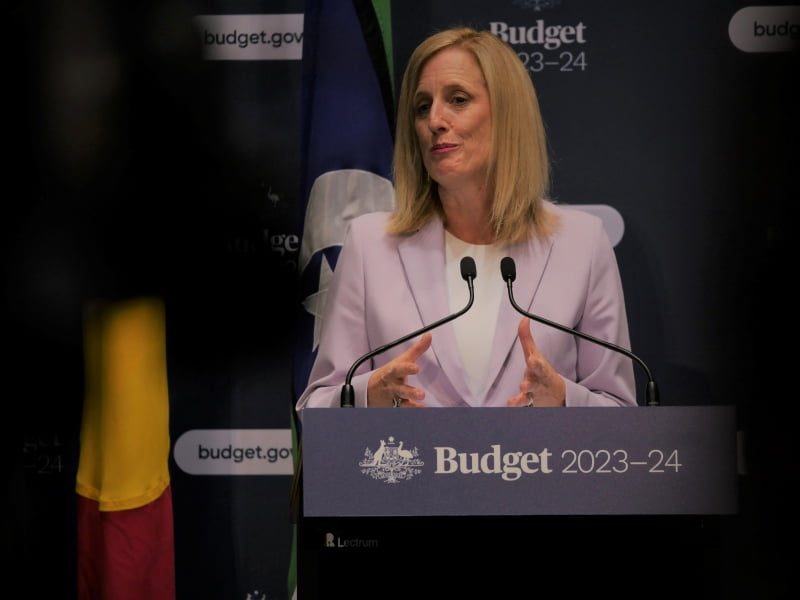Small businesses feel excluded from Canberra’s “in-crowd” of suppliers and say competition mechanisms — including the Albanese government’s latest attempt — are being overlooked.
A new paper reveals the frustrations in an $80 billion annual spend, including complaints of uncompetitive panel arrangements, an opaque tender pipeline, large companies using wholly-owned subsidiaries to exploit SME exemptions, and “personal relationships” impacting contract decisions.
The objections come amid multiple procurement scandals and confirmation local firms have effectively been locked out of another technology project.

Finance minister Katy Gallagher in March ordered the Australian Small Business and Family Enterprise Ombudsman (ASBFEO) Bruce Billson to examine how federal procurement is working for small businesses, including the impact of her most recent changes.
It is estimated 86 per cent of federal government suppliers are SMEs, but they receive only 31 per cent of contracts by value.
“Since beginning the inquiry in March, many small businesses have told us they feel shut out of the process or they simply find it too hard to navigate,” Mr Billson said on Thursday.
“They have low awareness about procurement opportunities unless they are already part of the ‘in-crowd’ through existing relationships with procuring agencies, or previous experience in government procurement.”
In 2021-22, the government awarded 92,303 contracts with a combined value of $80.8 billion, meaning even marginal changes could shift billions of dollars to smaller local businesses.
Ms Gallagher last year made significant changes to the Commonwealth Procurement Rules that govern the spend, including doubling the SME target and increasing the threshold for Defence – government’s biggest buyer – to go directly to smaller firms.
The changes also included requiring officials to consider disaggregating major projects into smaller contract opportunities to allow more competition, reducing insurance costs and speeding up invoice payments.
But the Ombudsman heard from smaller businesses they are concerned about awareness of the changes in government departments and procurement officials’ capability to implement them.
“While the changes were expected to increase SME procurement, our consultations suggest a focus remains on large businesses and familiar counterparties. Instead, SMEs are encouraged to participate in supply chains with large businesses,” the ASBFEO said in an issues paper.
A perceived preference for larger suppliers has also become a deterrent for smaller competitors to bid for the work, and when they do there is “limited or no feedback provided when tender is unsuccessful”, small businesses told the Ombudsman.
The paper also raises issues about the panels set up to shortlist qualified providers to provide work up to up to a certain value. The panels remove barriers to procurement and have become increasingly popular over the last decade, with hundreds now in use for everything from office supplies to critical technology systems.
But smaller suppliers warned getting on a panel remains a resource intensive process that comes with no guarantees of more work and officials still tended to default to large suppliers.
“This leaves small businesses with a complex web of procurement panels that is difficult to navigate without previous experience or knowledge about the inner workings of government procurement,” the report said.
While the inquiry began as a specific look at the Albanese government’s changes, the Ombudsman has taken a broader look with the issues paper, including examining how other jurisdictions are improving competition.
It points to both the UK government and the South Australian government’s use of “SME champions” within government and a state Industry Advocate, respectively, as potential paths to follow for the Commonwealth. The US offering contracting assistance to small businesses located in targeted, economically distressed communities was also floated.
The ASBE has extended a submissions deadline for its inquiry until September 15. It will deliver a final report to government by the end of the year.
“We are looking at the Commonwealth Procurement Rules to see how they are being applied, which departments are doing well, and whether there’s further steps that can be taken to improve the system,” Mr Billson said.
The Albanese Government has committed to reforming procurement through a Buy Australia Plan, including establishing a Future Made in Australia Office within the Department of Finance.
Independent Senator David Pocock on Monday called for more fundamental changes after the price tag for the federal government’s new GovERP system — to be delivered by a multinational under limited tender — was revealed as so far costing $345 million.







